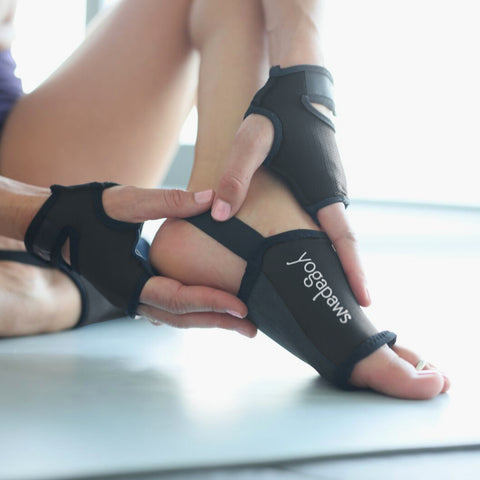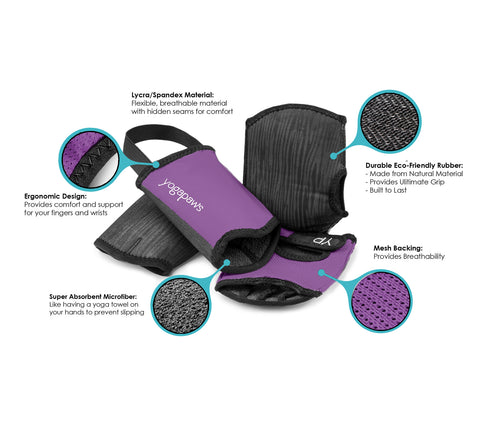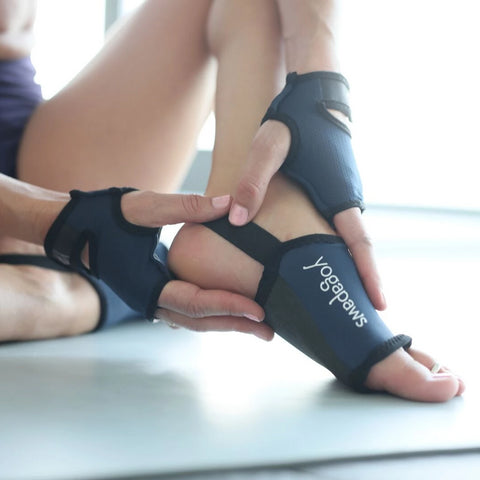Posted on March 15 2018
 Are you a morning or an evening person? If you look forward to being up with (before?) the birds, you don’t even need an alarm clock. But, by mid-evening, your body is telling you it’s time to wind down. You’re not going to be striding into a power yoga class that starts at 8 p.m. and give 100%. For night owls, the alarm can’t ring late enough. While a morning vinyasa class is a wonderful way to start the day, a vigorous evening practice is a perfect reward after the work or school day. Whether you embrace sunrise or moonrise, taking a more holistic look at your life and your body’s preferred daily rhythms can help you find more energy.
Are you a morning or an evening person? If you look forward to being up with (before?) the birds, you don’t even need an alarm clock. But, by mid-evening, your body is telling you it’s time to wind down. You’re not going to be striding into a power yoga class that starts at 8 p.m. and give 100%. For night owls, the alarm can’t ring late enough. While a morning vinyasa class is a wonderful way to start the day, a vigorous evening practice is a perfect reward after the work or school day. Whether you embrace sunrise or moonrise, taking a more holistic look at your life and your body’s preferred daily rhythms can help you find more energy.
The obvious first step is to make sure you are getting enough sleep. The need for rest doesn’t disappear with adulthood, especially if you’re active. Not that squeezing seven hours of shut-eye into your hectic schedule is easy, but you’ll find that you are more productive and get more done during the day if you’re rested. And not being tired all of the time makes every minute more enjoyable!
Feeling energized when you wake up, isn’t just a matter of how long or deeply you sleep, but also whether your rest is in sync with your body’s schedule. The seven hours from 11 p.m. to 6 a.m. make a lot more sense physiologically than, say, a 10 a.m. to 5 p.m. snooze. In Ayurvedic thinking, you should plan to wake up shortly before sunrise. While that might be too early or late for you depending on your schedule, it’s a starting point.
Obviously, just getting up earlier isn’t going to make you less fatigued unless you also get to bed earlier. You’ve probably heard this before, but resisting that late-evening urge to check your Facebook can make it easier to fall asleep—the light from computer and mobile device screens tricks your body into thinking that it’s still daytime. It also might help to not procrastinate on household chores. Aim to get everything off your to-do list by 10 p.m. or so. Making a bedtime ritual of gentle yoga practice or meditation can also help reset your body clock. The other main rhythm in your body is its expectation for food. With on-the-go lives that often see people eating in their cars, at their desks or standing in the kitchen late at night, it’s easy to forget how important meals are in determining your energy levels. In Ayurveda, your digestive fire is thought to peak around noon, so having a heavier lunch and lightening up your evening meal will give you more energy through the day and help you unwind at night. It’s also important never to skip breakfast. Eating when you get up, around noon and again at 6 p.m. helps keep your blood sugar stable. Avoiding eating late at night also helps your body know it’s time to sleep.
The other main rhythm in your body is its expectation for food. With on-the-go lives that often see people eating in their cars, at their desks or standing in the kitchen late at night, it’s easy to forget how important meals are in determining your energy levels. In Ayurveda, your digestive fire is thought to peak around noon, so having a heavier lunch and lightening up your evening meal will give you more energy through the day and help you unwind at night. It’s also important never to skip breakfast. Eating when you get up, around noon and again at 6 p.m. helps keep your blood sugar stable. Avoiding eating late at night also helps your body know it’s time to sleep.
Whether you practice in the morning, afternoon or evening, keeping your sleep and eating patterns fairly close to your body’s sense of normal will give you more energy for the day. It can also help you feel less stressed out because you’ll be demanding concentration and energy from your body when it expects you to do so. That’s not to say that you have to stay in a bubble—a late night once in a while isn’t going to put you back to square one. But, building a lifestyle that generally follows healthy patterns will also help you bring more to your practice.








